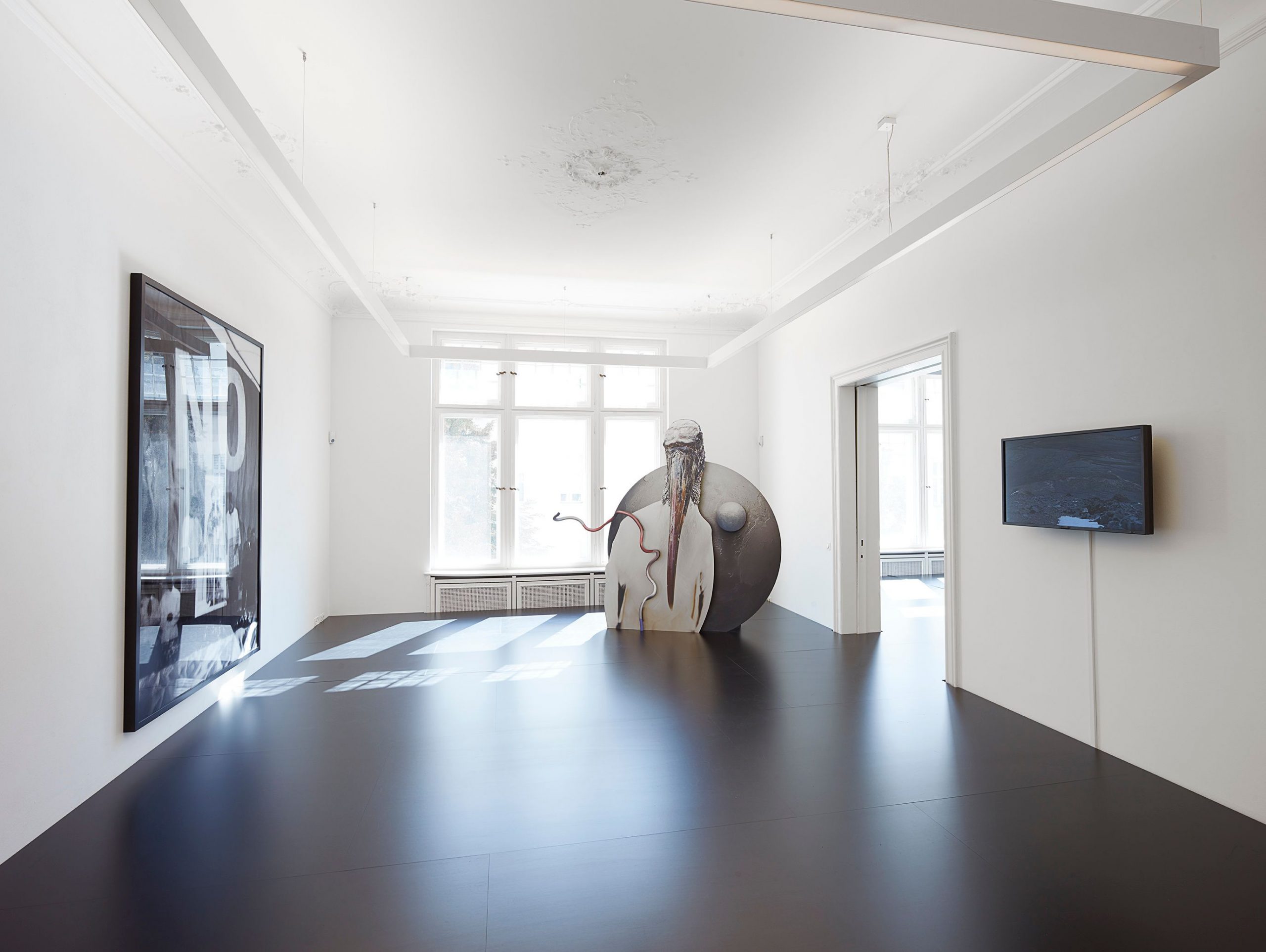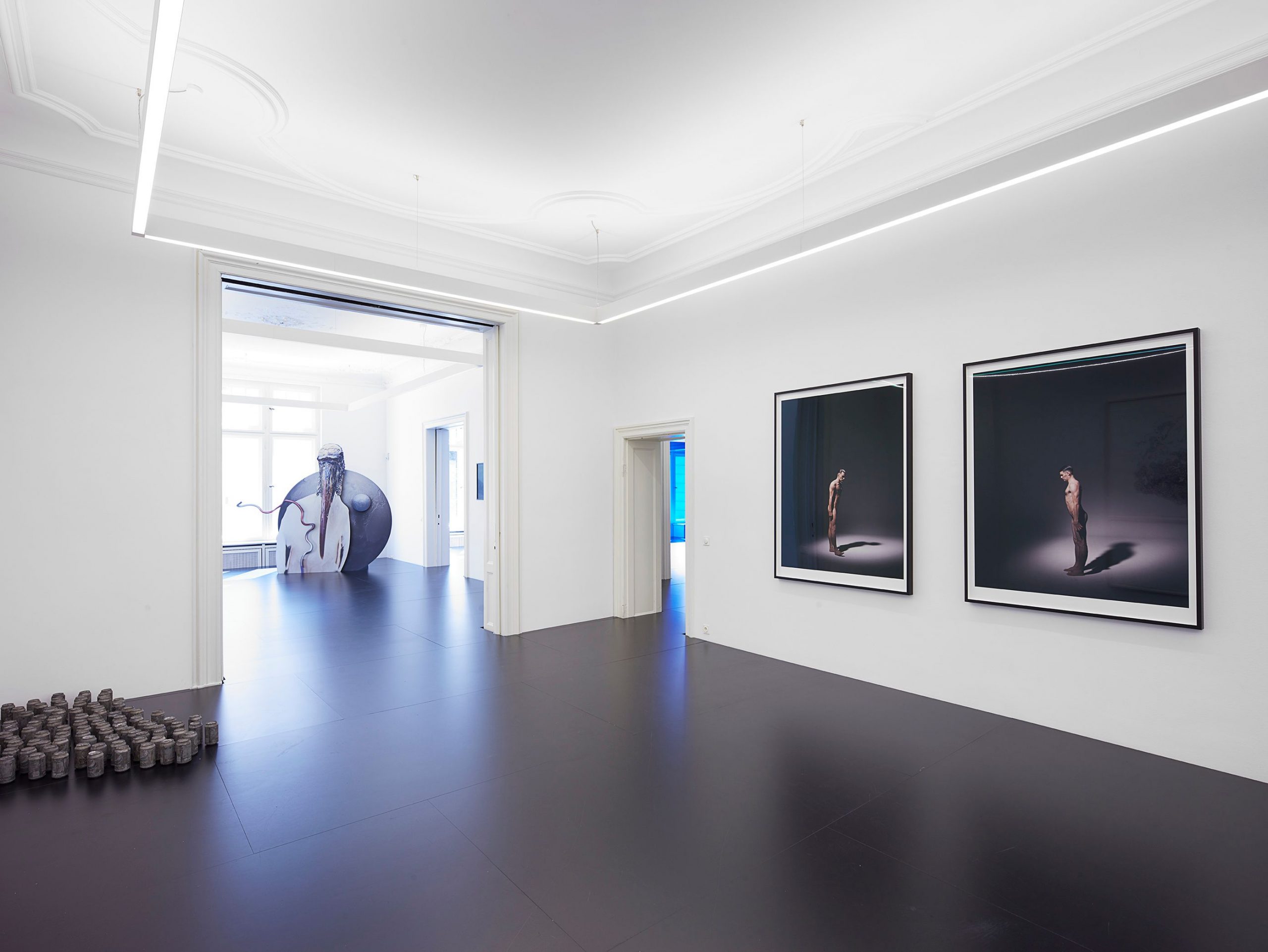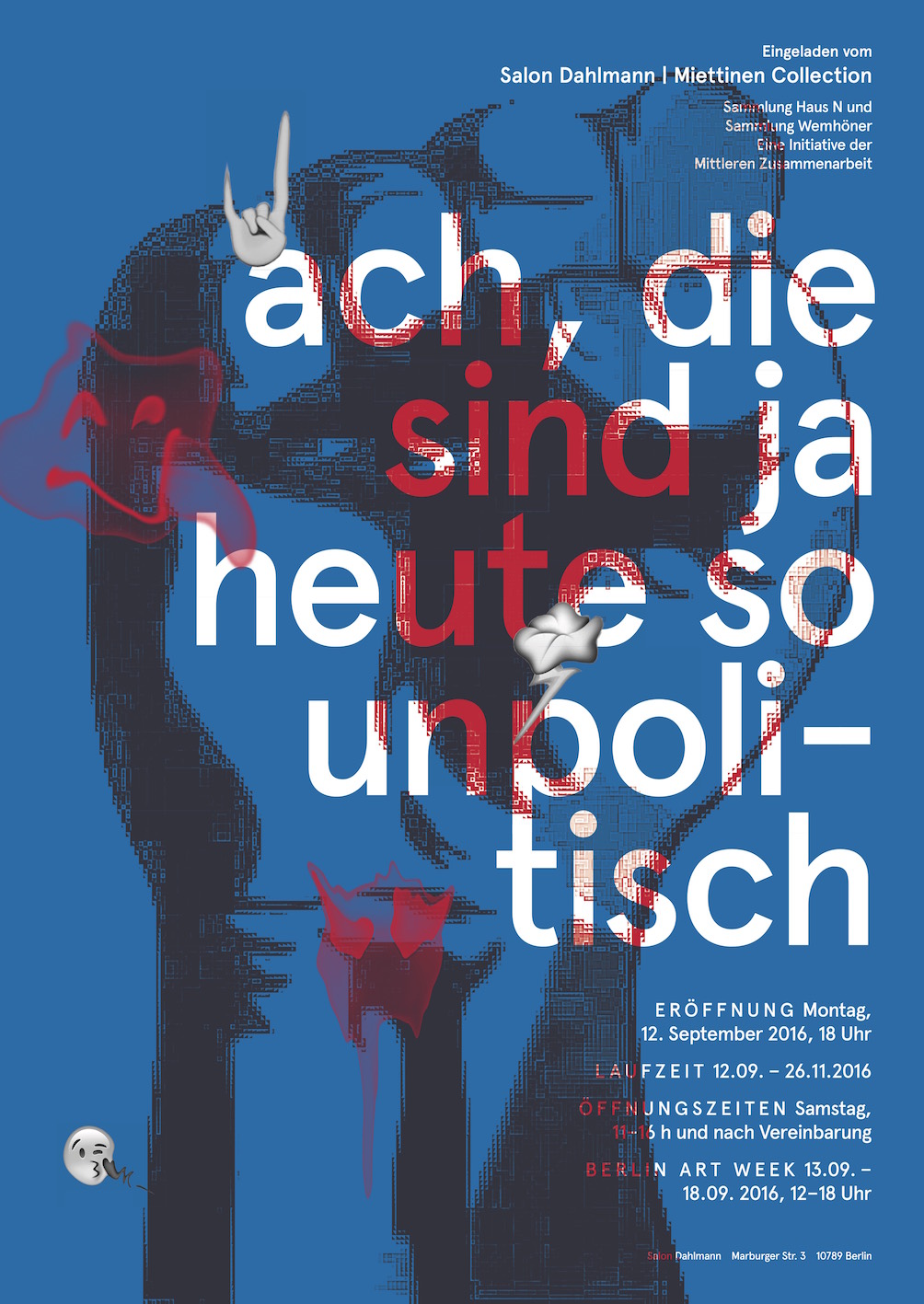ACH, DIE SIND JA HEUTE SO UNPOLITISCH
13.09. – 26.11. 2016
Collection Haus N and Wemhöner Collection – An initiative by the Mittleren Zusammenarbeit. Invited by Salon Dahlmann
Julius von Bismarck, James Bridle, Ben Thorp Brown, Julian Charrière, Jana Gunstheimer, Ivan Grubanov, Alfredo Jaar, Alicja Kwade, Alex Lebus, Andreas Mühe, Katja Novitskova, Yuri Pattison, Hannah Perry, Bettina Pousttchi, Nicolai Rapp, Michael Sailstorfer, Santiago Sierra, Kaari Upson, Brigitte Waldach
Hectographed leaflets before the school gates, the introduction of a smokers’ corner, a basement for band practice, going on demos, behind red banners with slogans, news plastered on walls, jeans as an attitude, long hair, army parka, anti-nuclear power, Pershing II – that was life as they knew it – Heiner Wemhöner, Gunda and Peter Niemann. It’s a long time ago, it was right and important back then, but it’s in the past. Today the ’68 generation occupy positions of power themselves and demand respect for what they achieved in the form of “keep it up”, keep treading the once righteous path. That’s more a fighting mentality than it is real concern about how the world will continue. If one considers that, at the end of the 1960s, only a fraction of the youth belonged to the ’68 movement, the question arises as to where so many righteous fighters from back then have come from.
Which, in turn, throws up the other question about why there are relatively fewer political campaigners nowadays: Why is the voter turnout among the young generation so low nowadays, why are so few of this generation members of trade unions or political parties?
It appears that:
Political is something else today.
Being political is different today.
Political action is different today.
And we ask ourselves:
How political are people today?
Who is political today?
What drives people to political action today?
How do people who are political act today?
These are the questions that the exhibition “ach, die sind ja heute so unpolitisch“ takes a closer look at. And it is the question with which the ‘Mittlere Zusammenarbeit’ presents itself one more time to the public. In Salon Dahlmann the Wemhöner Collection and the Haus N Collection are showing selected works which, placed in a new context, generate new perspectives.
The ‘Mittlere Zusammenarbeit‘ is an initiative from Peter Niemann. It makes medium-sized collections available to the public, and promotes exchange and cooperation between different collections. Salon Dahlmann recommends itself as an interface and a stage on which these processes of dialogue can be rendered visible.












